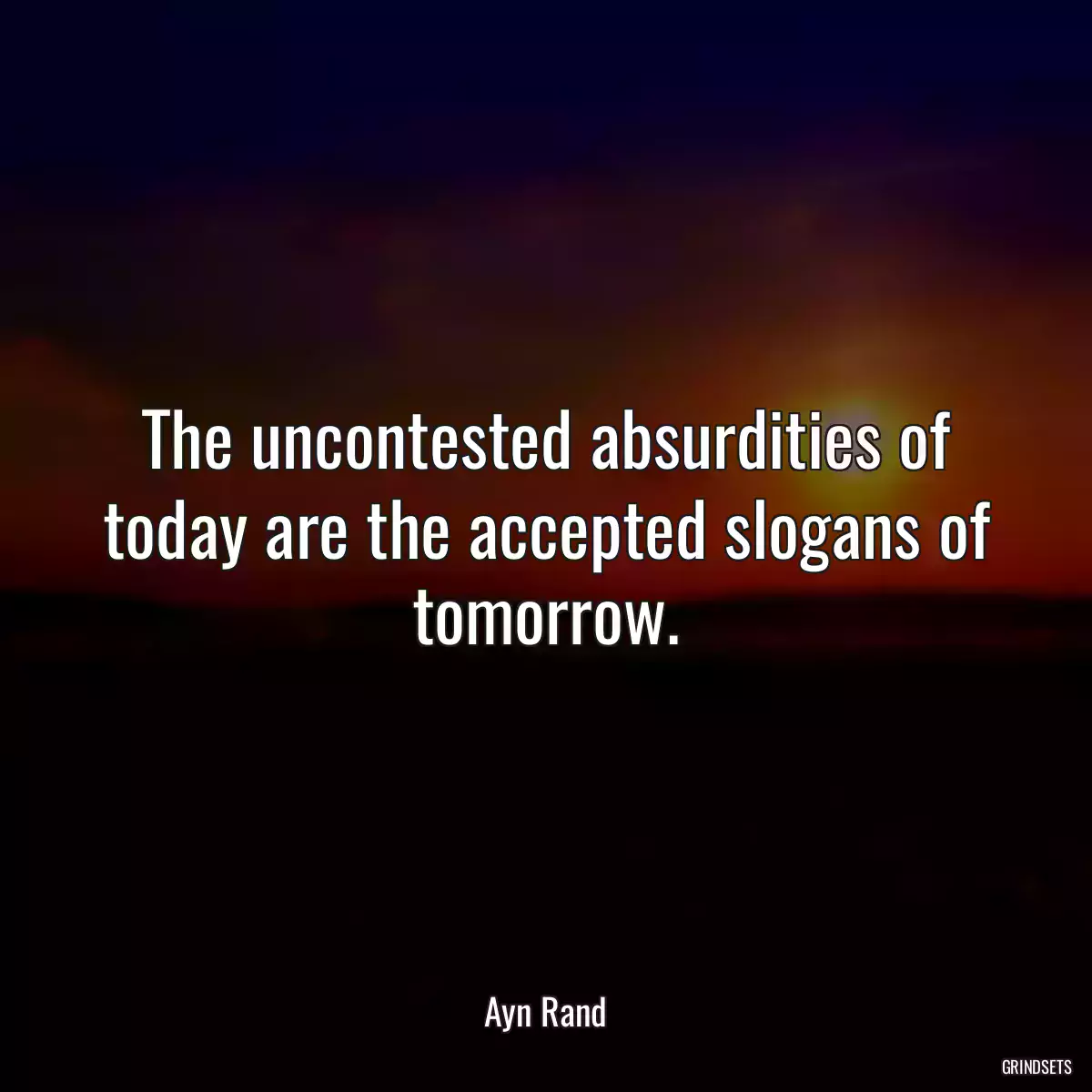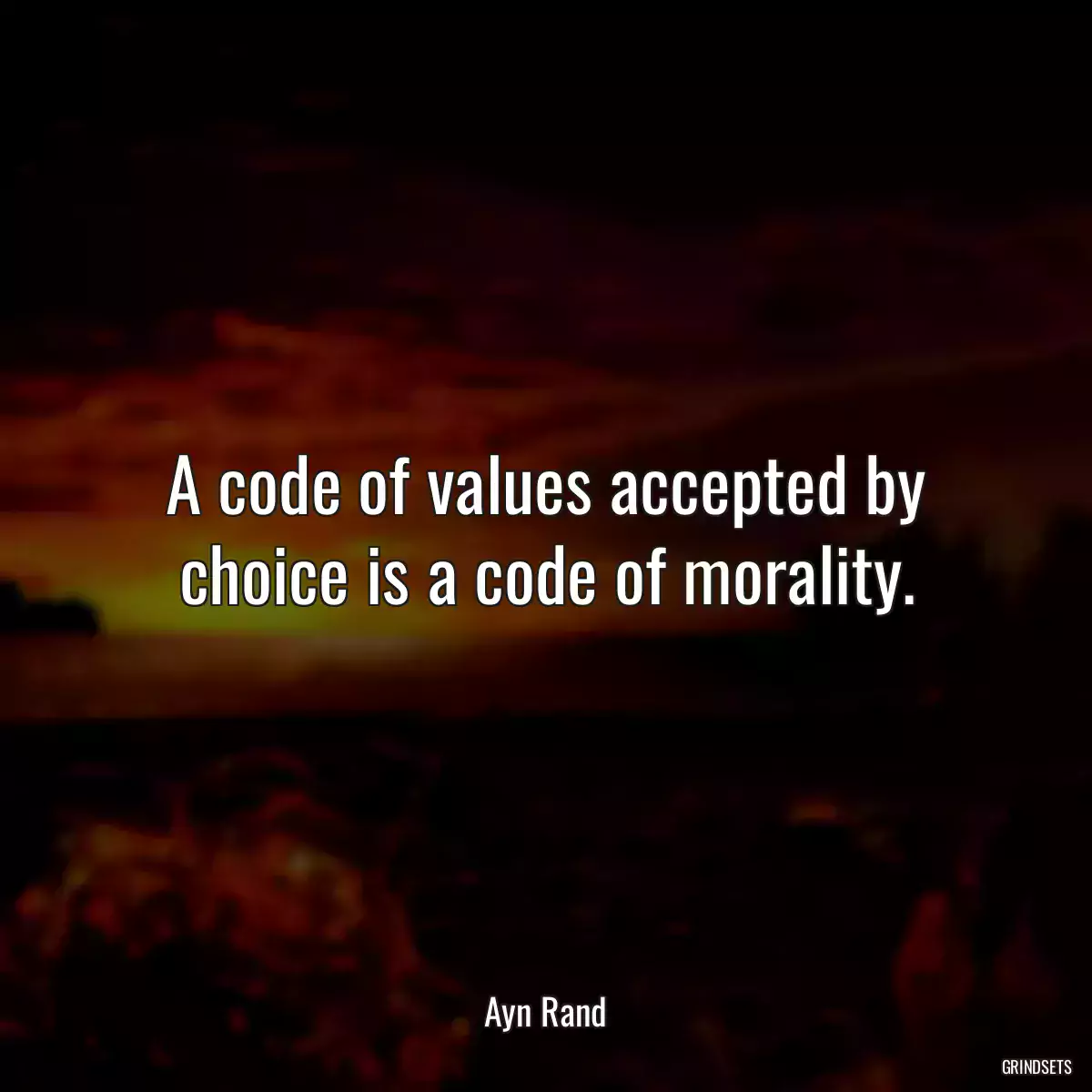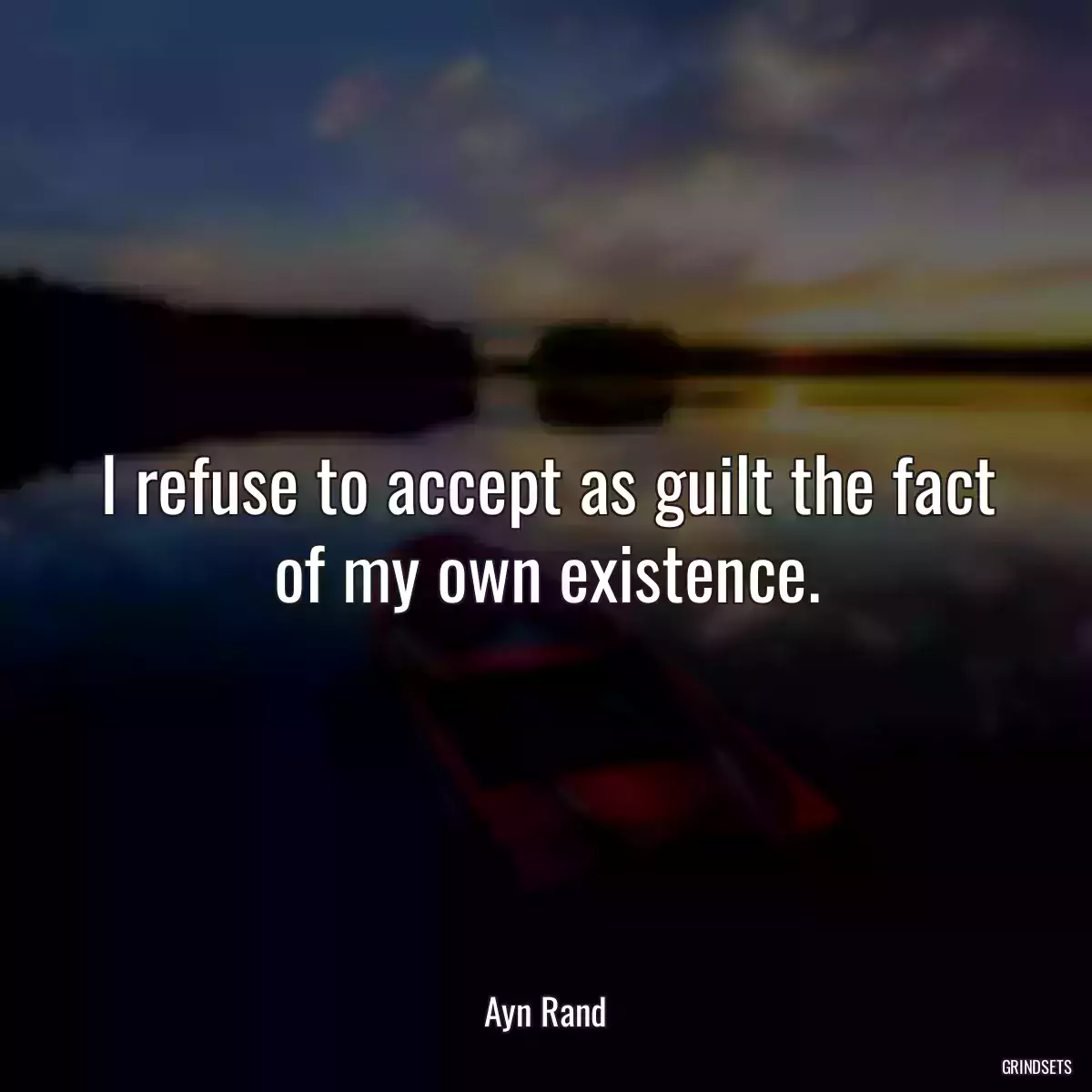
Quotes Ayn Rand - page 5
Find dozens of Ayn Rand with images to copy and share.

The uncontested absurdities of today are the accepted slogans of tomorrow. They come to be accepted by degrees, by dint of constant pressure on one side and constant retreat on the other - until one day when they are suddenly declared to be the country's official ideology.
America's abundance was not created by public sacrifices to the common good, but by the productive genius of free men who pursued their own personal interests and the making of their own private fortunes.
America's abundance was created not by public sacrifices to the common good, but by the productive genius of free men who pursued their own personal interests and the making of their own private fortunes. They did not starve the people to pay for America's industrialization. They gave the people better jobs, higher wages, and cheaper goods with every new machine they invented, with every scientific discovery or technological advance- and thus the whole country was moving forward and profiting, not suffering, every step of the way.
You may also like
Thanksgiving is a typically American holiday. In spite of its religious form (giving thanks to God for a good harvest), its essential, secular meaning is a celebration of successful production. It is a producers’ holiday. The lavish meal is a symbol of the fact that abundant consumption is the result and reward of production. Abundance is (or was and ought to be) America’s pride-just as it is the pride of American parents that their children need never know starvation.
All the evils, abuses, and iniquities, popularly ascribed to businessmen and to capitalism, were not caused by an unregulated economy or by a free market, but by government intervention into the economy.
It is the metaphysically given that must be accepted: it cannot be changed. It is the man-made that must never be accepted uncritically: it must be judged, then accepted or rejected and changed when necessary.
Productiveness is your acceptance of morality, your recognition of the fact that you choose to live.
Productiveness is your acceptance of morality, your recognition of the fact that you choose to live-that productive work is the process by which man's consciousness controls his existence, a constant process of acquiring knowledge and shaping matter to fit one's purpose, of translating an idea into physical form, of remaking the earth in the image of one's values-that all work is creative work if done by a thinking mind.

That an error made on your own is safer than ten truths accepted on faith, because the first leaves you the means to correct it but the second destroys your capacity to distinguish truth from error.
Man has been called a rational being, but rationality is a matter of choice... Man has to be a man-by choice; he has to hold his life as a value-by choice; he has to learn to sustain it-by choice; he has to discover the values it requires and practice his virtues by choice. A code of values accepted by choice is a code of morality.
People are not embracing collectivism because they have accepted bad economics. They are accepting bad economics because they have embraced collectivism.
Of all the statist violations of individual rights in a mixed economy, the military draft is the worst. It is an abrogation of rights. It negates man’s fundamental right-the right to life-and establishes the fundamental principle of statism: that a man’s life belongs to the state, and the state may claim it by compelling him to sacrifice it in battle. Once that principle is accepted, the rest is only a matter of time.
There are two principles on which all men of intellectual integrity and good will can agree, as a 'basic minimum,' as a precondition of any discussion, co-operation or movement toward an intellectual Renaissance. . . . They are not axioms, but until a man has proved them to himself and has accepted them, he is not fit for an intellectual discussion. These two principles are: a. that emotions are not tools of cognition; b. that no man has the right to initiate the use of physical force against others.
Live and act within the limit of your knowledge and keep expanding it to the limit of your life. Redeem your mind from the hockshops of authority. Accept the fact that you are not omniscient, but playing a zombie will not give you omniscience-that your mind is fallible, but becoming mindless will not make you infallible-that an error made on your own is safer than ten truths accepted on faith, because the first leaves you the means to correct it, but the second destroys your capacity to distinguish truth from error.
It's not that I don't suffer, it's that I know the unimportance of suffering. I know that pain is to be fought and thrown aside, not to be accepted as part of one's soul and as a permanent scar across one's view of existence.
The moral is the chosen, not the forced; the understood, not the obeyed. The moral is the rational, and reason accepts no commandments.
You may also like

There is no hope for the world unless and until we formulate, accept and state publicly a true moral code of individualism, based on man's inalienable right to live for himself. Neither to hurt nor to serve his brothers, but to be independent of them in his function and in his motive. Neither to sacrifice them for himself nor to sacrifice himself for them.